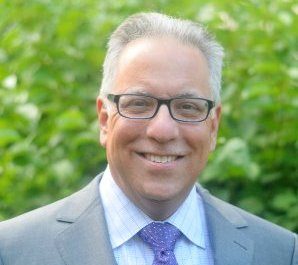“What seems to be a policy is that the State of Israel knows where American Jewry is when it needs US governmental and Jewish community dollars.”
The Interviewee – Rabbi Dr. Eric M. Lankin (Born 1956) Executive Director, ELEM/Youth in Distress in Israel. Born in Philadelphia, PA. Attended public high school; Graduate of the Wharton School of the University of PA; ordained a Conservative rabbi at JTSA and Doctorate in Pastoral Counseling at HUC-JIR. Served as a professional in the Jewish community since 1985. Lives in New York.
In your opinion, what importance, if any, does the existence of a Jewish state have to you personally and to Jewish people in general?
“I feel very fortunate that I live at a time where the physical manifestation of a Jewish homeland and independent Jewish state is not only easily accessible to me but is a critical factor of my Jewish spiritual expression.”
Do you feel committed in some way to defend the future existence of Israel?
“Yes, I am inextricably spiritually and physically bound to the State of Israel and intend to make aliya with my family to fulfill my dreams. My youngest son is presently in the Golani Brigade of the IDF.”
Do you affiliate yourself with a specific denomination in Judaism? What is your view regarding the dominance of the Orthodox denomination in Israel religious establishment?
“Although I am affiliated with Orthodox institutions in the United States including belonging to two Orthodox synagogues, I am distressed by the religious arrogance of the Chief Rabbinate in Israel and would welcome its demise. I strongly believe that this arrogance and tyranny is preventing the solving of Israel’s greatest demographic challenge, which is the need to convert thousands of Jews from the FSU.”
Do you feel morally responsible for Israel’s actions (such as its management of the Israeli-Palestinian conflict)?
“Yes, I feel obligated as a part of the Jewish people to encourage Israel to address its challenges including the Israeli-Palestinian relationship. However, I do not believe that this issue is the most serious moral challenge that Israel faces. The growing income inequality between the richest and poorest of Israel’s citizens is the greatest challenge.”
In your opinion, what is the main thing Israelis fail to understand about the reality of being Jewish outside of Israel?
“Pluralism. That the Jewish people can express them self in various formulations about being Jewish while remaining a single people. In general, Israelis also do not understand the profound demographic challenges facing American Jewry.”
How would you describe Israel’s policy (formally and in practice) regarding its relationship with the Diaspora?
“I really don’t know what the policy is. What seems to be a policy is that the State of Israel knows where American Jewry is when it needs US governmental and Jewish community dollars.”
In your opinion, does Israel have an obligation to defend and help Jewish communities in need?
“Yes, it is a dynamic relationship and even Vice President Biden recognized it in one of his remarks.”
Have you ever been to Israel? if you have, can you summarize your impression from the Israeli reality?
“I have visited Israel countless times, from studying in graduate school for a year to leading missions. Every time I go, I experience a change from the last time I visited.”
Can you tell us a bit about the Jewish community in your hometown? Is it organized? Are there community activities?
“Spiritually and culturally rich with 40% of the population identifying as Jewish. Six very healthy modern Orthodox synagogues; Three large yeshivot; 2 kosher restaurants and a glatt kosher take-out. Mikvah. One Conservative synagogue that is stable; the local Schechter school closed a couple of years ago. No Reform synagogue in town but in one town over. Active Federation of Jewish agencies.”
Is there a question you feel should be added to the project’s questionnaire?
“How do you express you connection to the State of Israel? Where in the list of your personal priorities does Israel fit?”

